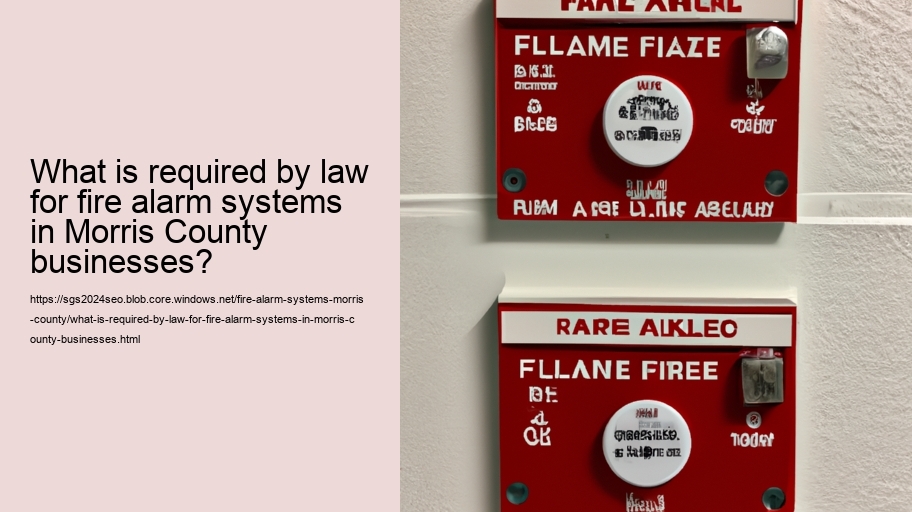Fire Alarm System Requirements for Businesses in Morris County: A Legal Overview
What is involved in installing a fire alarm system in Morris County? .
In Morris County, New Jersey, as in many other jurisdictions across the United States, fire safety regulations are a critical component of public safety policy. These regulations are designed to protect both life and property from the catastrophic effects of fire. Among the various safety measures enforced, fire alarm systems in businesses play a crucial role. Understanding the legal requirements for these systems is essential for business owners to ensure compliance and to safeguard their premises and occupants effectively.
Regulatory Framework
The legal requirements for fire alarm systems in Morris County businesses are primarily governed by a combination of local ordinances, state laws, and national standards. The New Jersey Uniform Fire Code (UFC), which adopts guidelines from the National Fire Protection Association (NFPA), serves as the foundational document for fire safety regulations in the state. Specifically, the NFPA 72 National Fire Alarm and Signaling Code is a key reference that outlines the standards for the installation, maintenance, and performance of fire alarm systems.
Installation and Maintenance
One of the primary legal requirements is that businesses must have a properly installed fire alarm system that is appropriate for the building's size, occupancy type, and specific risks associated with the business activities. The installation must be carried out by a licensed professional to ensure that all components, including detectors, alarms, and control panels, meet the specified standards.
Regular maintenance and testing of the fire alarm system are also mandated by law. This includes routine inspections to verify that all devices are operational and that the system can adequately detect and alert occupants to a fire. Maintenance records must be meticulously kept and made available for review by fire safety inspectors.
System Design and Components
The design of the fire alarm system must accommodate the unique characteristics of the business premises. For instance, larger buildings or those with complex layouts may require more detectors and alarm points to ensure comprehensive coverage. In multi-story buildings, each floor must have its own alarm notification system. Additionally, businesses that handle hazardous materials or have areas with high fire risk may need specialized detection systems.
Alarm systems must include both audible and visual alerts to cater to all occupants, including those with disabilities. The alarms should be loud enough to be heard over background noise and should be strategically placed to ensure that the warning is perceptible throughout the building.
Integration with Other Safety Systems
Another legal requirement is the integration of the fire alarm system with other safety measures, such as sprinkler systems and emergency lighting. This integration ensures a coordinated response during a fire, facilitating safe evacuation and minimizing damage. Businesses are required to have an evacuation plan that is regularly practiced with employees to ensure preparedness.
Compliance and Inspections
To enforce compliance, Morris County conducts regular fire safety inspections. These inspections are carried out by local fire departments and are designed to ensure that businesses adhere to all applicable fire safety laws and regulations. Non-compliance can result in penalties, fines, or even closure of the business until the necessary corrections are made.
Conclusion
In summary, the legal requirements for fire alarm systems in Morris County businesses are comprehensive and designed to ensure optimal safety for both occupants and property. Business owners must be diligent in understanding and implementing these requirements, which include proper installation, regular maintenance, system design tailored to the building, and integration with other safety systems. By adhering to these regulations, businesses can significantly reduce the risk of fire-related incidents, thereby protecting lives and securing property. Compliance not only fulfills a legal obligation but also demonstrates a commitment to the safety and well-being of employees, customers, and the community at large.
